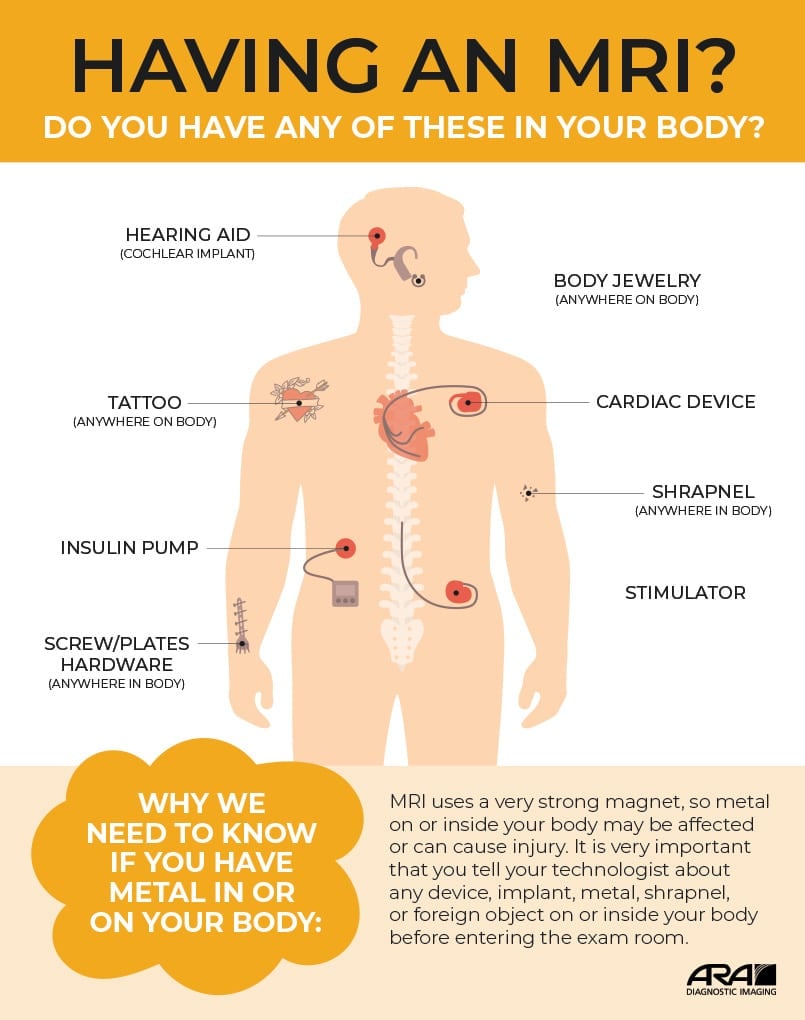Metal in your body: Things you must know before MRI
Since MRI uses a very strong magnet, metal on or inside the body may be affected, so be sure to tell your scheduler and technologist about any device, metal, or shrapnel in your body and they will determine if it is safe for you to proceed with the MRI. In general, metallic orthopedic implants are not affected by MRI. Your implant or device may come with a special information card that you should bring to your appointment and show to the technologist.
Fill out online form before your MRI exam. Without this form completed, you will not be able to have MRI: https://zfrmz.com/1FG8ndpcKFLYEfO5gIN7
Some implants are not compatible with MRI scanners. Do not enter any MRI suite without notifying your technologist if you have any of the following implants:
- Cochlear (ear) implant or hearing aides
- Brain aneurysm clips
- Metal coils/stents placed inside blood vessels
- Neurostimulators or implanted programmable devices
- Cardiac defibrillators and pacemakers
Other implants that should be brought to the technologist’s attention are:
- Artificial heart valves
- Implanted drug infusion ports or pumps
- Artificial limbs or metallic joint prostheses
- Metal pins, screws, plates, stents, or surgical staples
- Some IUDs
- These are but a few of the implants that require detailed information to determine MRI compatibility. Please inform your physician, imaging scheduler and technologist of anything within or on your body that was not present at birth.
Also, if you have any other metal in your body (shrapnel, bullets, foreign objects, etc.) you should notify your provider, scheduler, or technologist. Metal in or near the eye is especially dangerous since movement of the metal during the procedure could lead to injury. Dental fillings and braces usually are not affected by the magnetic field, but they may distort images taken of the head or face. Body piercings, jewelry, and any other metal objects on your body will have to be removed before your MRI exam. The ink in tattoos may contain metallic properties, and you should tell your technologist if you have tattoos.





